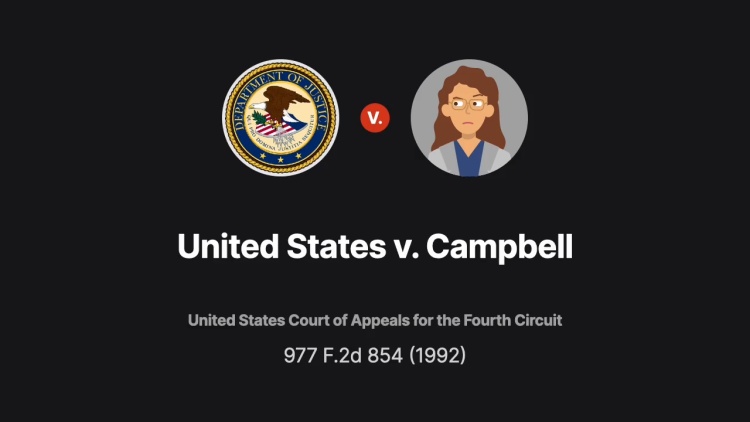United States v. Campbell
United States Court of Appeals for the Fourth Circuit
977 F.2d 854 (1992)

- Written by Sara Rhee, JD
Facts
Ellen Campbell (defendant) was a real estate agent in North Carolina. Mark Lawing sought to purchase a home through Campbell. Lawing was a drug dealer but told Campbell that he owned an automobile-customization company. Campbell arranged for Lawing to see 10 to 12 homes. Lawing arrived at the showings in a luxury car and carried his cellular phone with him. During one meeting, Lawing showed Campbell a briefcase containing $20,000 in cash. Lawing eventually sought to purchase a home for $182,500. Unable to secure a loan, Lawing requested that the sellers accept $60,000 under the table and lower the contract price to $122,500 so that his parents could secure a loan for him. The sellers agreed, and Campbell was present when Lawing brought $60,000 in cash in a brown paper bag and gave it to the sellers. At one point prior to the sale, Campbell told a colleague that she suspected Lawing’s funds might be drug money. After a jury trial, Campbell was convicted of money laundering in violation of 18 U.S.C. § 1956(a)(1)(B)(i) and participating in a monetary transaction in property derived from criminal activity in violation of 18 U.S.C. § 1957(a). Thereafter, the district court granted Campbell’s motion for acquittal. The district court’s order was appealed.
Rule of Law
Issue
Holding and Reasoning (Ervin, C.J.)
What to do next…
Here's why 907,000 law students have relied on our case briefs:
- Written by law professors and practitioners, not other law students. 47,100 briefs, keyed to 996 casebooks. Top-notch customer support.
- The right amount of information, includes the facts, issues, rule of law, holding and reasoning, and any concurrences and dissents.
- Access in your classes, works on your mobile and tablet. Massive library of related video lessons and high quality multiple-choice questions.
- Easy to use, uniform format for every case brief. Written in plain English, not in legalese. Our briefs summarize and simplify; they don’t just repeat the court’s language.





